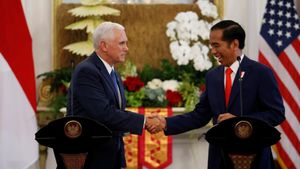The dairy industry is currently embroiled in controversy over the use of Bovaer, a feed additive introduced by Arla Foods, aimed at reducing methane emissions from dairy cows. This initiative, launched alongside major retailers like Morrisons, Aldi, and Tesco, has sparked significant backlash from consumers who fear potential health risks and animal welfare implications.
Bovaer, developed by DSM Firmenich, is heralded as capable of reducing methane emissions by up to 29% when fed as part of cows' diets. This additive is not new; it has already been authorized for use across Europe and has been trialed successfully. Farmers participating in this trial hope to demonstrate its safety and efficacy on their farms.
Despite regulatory approvals from bodies like the European Food Safety Authority (EFSA) and the UK Food Standards Agency, many consumers remain uneasy. Criticism has been exacerbated by misinformation circulating on social media, including unfounded rumors linking the additive to Bill Gates. Arla has categorically dismissed these claims, reaffirming their commitment to both consumer safety and animal health.
According to Arla, "The health and safety of both consumers and animals is always our number one priority, and we would never compromise on the quality or standards of the milk we produce." A spokesperson emphasized, "Bovaer has already been safely used across Europe, and at no point during the trial will there be any impact on the milk produced, as it does not pass from the cow to the milk."
The current trial involves about 30 farmers from the Arla cooperative and serves as the initial phase of larger efforts under Arla's FarmAhead initiative, which focuses on sustainability and reducing the dairy sector's carbon footprint. The company aims to gather data on integrating such additives within typical farming practices.
Nonetheless, customer response has been largely negative, with many expressing their intent to boycott Arla products. Comments on social media have ranged from accusations of "woke" corporate practices to grave concerns over feeding cows such additives. A considerable section of the public has voiced their disapproval, leading to fears of declining sales for major brands like Lurpak and Cravendale.
This campaign against Arla and its collaborators has also opened up discussions about consumer preferences, pushing many toward local, independent dairies. Smaller suppliers report increased inquiries as consumers seek alternatives, triggering debates about the sustainability of commercial dairy farming versus small-scale operations.
Rebecca Mayhew from Old Hall Farm, which produces milk without using additives, noted, “People want to know what it is, if we’re using it, and why it’s needed.” Many feel compelled to turn toward smaller farms for milk products, wanting reassurance about the methods used to raise those animals.
The Soil Association, representing organic farming interests, has noted heightened interest since the controversy erupted. Its representatives clarify their stance on additives, stating, "All ingredients must be approved and deemed safe and nutritionally useful." Current regulations mean Bovaer would not be permitted for use in organic standards, heightening consumer concern about the hybridisation of organic and conventional dairy supply chains.
Farmers, for their part, express hope for the future of the dairy industry but call for solid data to support the widespread adoption of feed additives like Bovaer. Paul Dover, Arla's agricultural director, commented, “We know reducing methane is a big opportunity for improving our carbon footprint... Together with our retail partners, we are excited about the potential of feed additives to address this issue.”
Though the trials could eventually bring about meaningful changes to dairy farming, the unease surrounding health and safety remains palpable. Efforts by Arla and its partners to communicate transparency and scientific backing have yet to resonate with many consumers. The saga seems set against the backdrop of wider discussions on climate action, food safety, and the delicate balance of modern agriculture.
Meanwhile, independent dairy farmers are rallying, urging consumers to opt for local options, which they argue offer both taste and purity. They believe this could be the tipping point for public perception, potentially positioning small dairy producers as champions of sustainability.
While the use of additives like Bovaer may promise substantial benefits for climate change mitigation, Arla’s experience demonstrates the importance of addressing consumer perceptions and misinformation head-on to secure the future of dairy farming both economically and ethically. This dialogue is just beginning and will likely evolve as more data from the trials emerge and consumer opinions continue to change.



